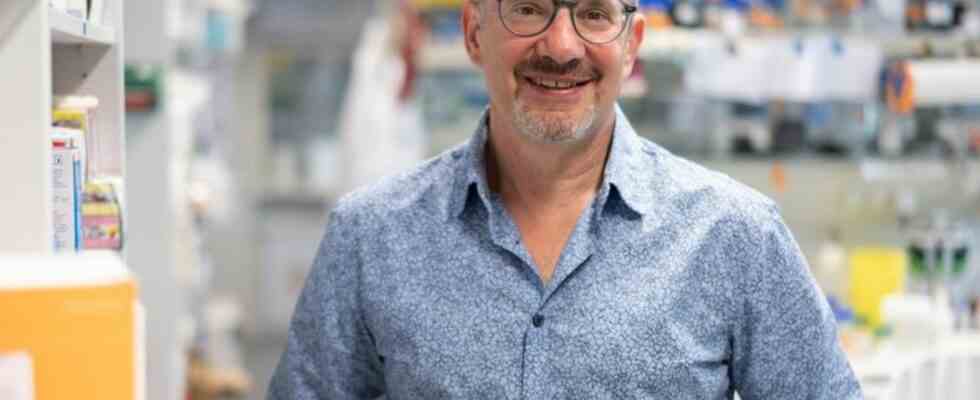research
Körber Prize for cell biologist Hyman
Anthony Hyman, cell biologist from Dresden, receives the Körber European Science Prize, which is endowed with one million euros. Photo: Friedrun Reinhold/Körber Foundation/dpa
© dpa-infocom GmbH
The cell biologist Hyman found potentially important clues in the embryos of a nematode. His discoveries could mean a big step in the search for an Alzheimer’s drug.
This year’s Körber European Science Prize, worth one million euros, goes to cell biologist Anthony Hyman, who conducts research in Dresden. He is honored for basic research on neurodegenerative diseases such as Alzheimer’s.
The 60-year-old Briton and his team discovered protein condensates in unicellular embryos of a nematode in 2009, the Körber Foundation announced on Thursday in Hamburg. The knowledge about the formation and breakdown of these membrane-less protein droplets in the cell could help to develop drugs against neurodegenerative diseases such as Alzheimer’s or ALS (amyotrophic lateral sclerosis). The cause of this suffering is said to be condensate that has solidified into toxic deposits.
Key to the biggest open questions
“Condensates hold the key to some of the biggest open questions in this field. Researchers around the world are trying to unravel the mysteries of the complex molecular interactions in the droplets,” explained the Körber Foundation.
Born in Haifa (Israel), the zoologist received his doctorate in 1987 from King’s College London on embryonic cell divisions of the nematode. In 1993, Hyman reportedly became group leader at the European Molecular Biology Laboratory in Heidelberg. In 1999 he was one of the founding members of the Max Planck Institute for Molecular Cell Biology and Genetics (MPI-CBG) in Dresden, which he still heads today.
Hyman wants to use the prize money to further refine the methods, it said. His goal is to decipher the amino acid codes that influence the behavior of proteins. He hopes to use it to explain how Alzheimer’s and other neurodegenerative diseases come about. The award is to be presented to the researcher on September 2nd in Hamburg City Hall.

